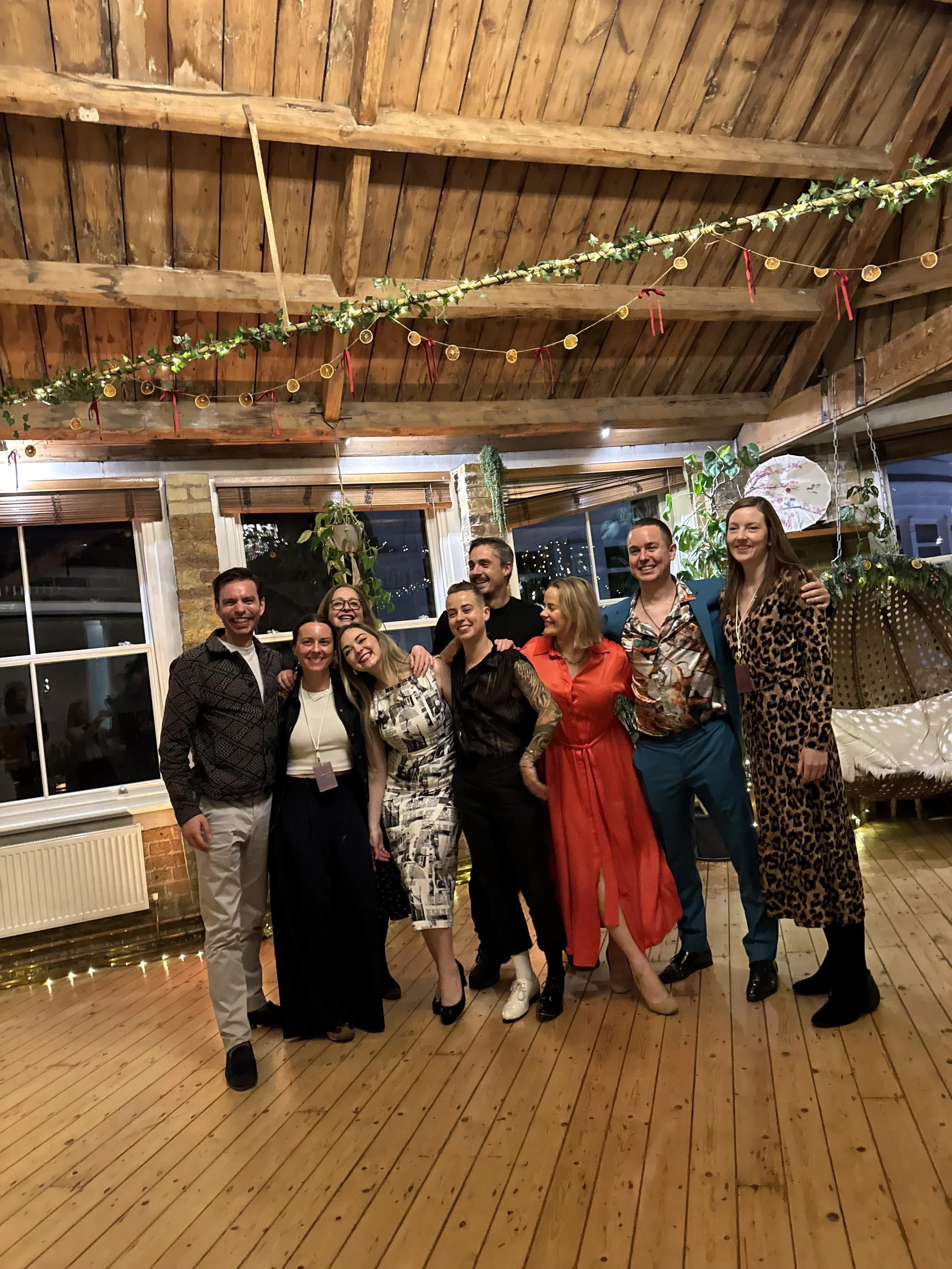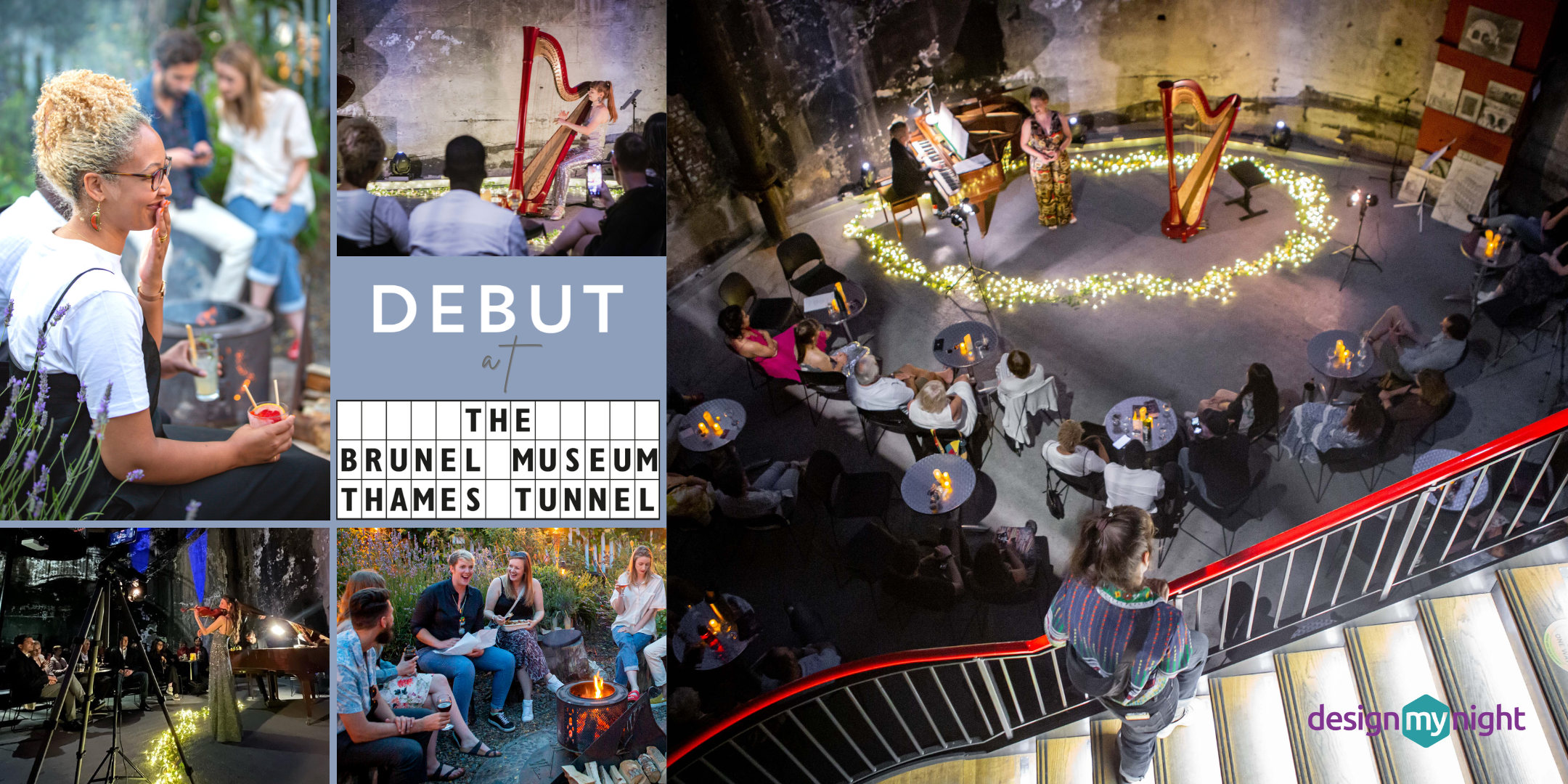Harmonising Cultures - Q&A with Rieko Makita
Meet Rieko Makita
Horizon artist and dear friend of DEBUT - that we can’t wait to have join us again in November!
Rieko Makita is a multi-award-winning Japanese pianist based in London. She is currently the 2023/2024 Constant and Kit Lambert Junior Fellow at the Royal College of Music, where she is closely collaborating with performers, composers, and visual artists, and curating concerts which explore Japanese music and culture.
Growing up in Sydney, Rieko moved to London to pursue her dreams as a performer and study a Masters at the Royal College of Music.
In addition to her piano performances, Rieko is also passionate about composing music. Her works have been performed at Shoreditch Treehouse in 2022 and at the RCM Museum as part of the 2023 FestivALL.
Welcome back Rieko!
You graduated from your masters at RCM in the summer (congratulations!), what have you been up to since then?
After graduation, I got to have a little breather; some time to reflect on the year and soak up some European sun. I also attended a summer course to keep learning (as a musician, its never-ending! In a good way though).
Then straight back into it! I began planning a big year ahead as the Constant & Kit Lambert Fellow at the Royal College of Music. This fellow position allows me to organise projects with RCM’s help which is so exciting for me.
I kicked off the year with leading a yoga and sound meditation workshop with Judith Kleiman where we explored the relationship of music with breathing, movement, and relaxation. For this I got to write some music myself and I was lucky to work with a talented composer Delyth Field who wrote some beautiful yoga music.
This experience was very special because yoga and mindfulness is such an important part of my life and so many musicians showed interest and turned up – we actually ran out of yoga mats!
Outside of RCM, I recently played at the Chanel Exhibition at the V&A, and at Bold Tendencies with players from Philharmonia.
From watching your career progress over the last few years, I can see that expressing your cultural background is an important part of your musical identity. Tell me a bit about how you weave this into your work - you always introduce me to new rarely performed repertoire!
London is such a multicultural city. Moving here has inspired me to be braver and bolder. To play music that are rarely performed or recently written and to dig deeper to find pieces that represent who I am. And so, I’ve been trying to include music written by female, Japanese or Australian composers in my programme whenever I can.
I think a concert becomes more personal and special when it includes pieces that are rarely heard and unique to the performer. Because after all, music is about sharing ideas, expressing a feeling, and telling a story. The music gives the performer a voice to express something that cannot be expressed by words. That’s why finding music which really resonates with me is so important.
Tell us about an exciting work you have coming up?
On Tuesday 28th of November I’m leading a concert, ‘Japanese Postcards’, which celebrates Japanese composers and culture at the Royal College of Music. We’re performing on a unique programme of rarely performed works with a stellar line up of musicians, conducted by Alex Mackinder and concertmaster Zea Hunt, at a beautiful venue; the Amaryllis Fleming Concert Hall at RCM!
The programme begins with some stunning piano and chamber works by Takashi Yoshimatsu and Somei Satoh. Then, we will be performing ‘O Hototogisu! A fragment of Japonisme,’ written by British composer Oliver Knussen, with soprano Felicitas Wrede. The piece is a setting of Japanese haiku poems which depicts Hototogisu (lesser cuckoo), interweaved with sounds of Japanese Kabuki theatre. This was Knussen’s last work before his passing in 2018. ‘White Landscapes’ by Yoshimatsu is next on the menu, with solo flautist Issy Haley-Porteous, cellist Clare Juan, harpist Ian Lim Xin and a chamber orchestra - an absolutely breathtaking piece written in 1991.
The concert wraps up with the premiere of my orchestral arrangement of Ryuichi Sakamoto’s ‘A flower is not a flower’. Sakamoto and his music have really inspired me throughout my life. He passed away in March this year, so this is a tribute to his life and his musical legacy which lives on.
This sounds super interesting! Tell me a bit more about the history and relationships between Japan & the West, and how this relates to your project?
This idea of a concert dedicated to Japanese composers and culture has been broiling for some time. Then I found out that this year marks the 170th year since the abolition of Japan’s 鎖国 (Sakoku, isolationism lasting from 1639 to 1853) and I knew this is the year to do it.
Japan began to reconnect with the world after 1853 and Japanese music, art and philosophy rapidly spread across the world, especially through events such as Exposition Universelle in Paris, sparking a fascination towards Japan and Japonisme. Debussy, Ravel, Puccini, Stravinsky, John Cage, Oliver Knussen were all intrigued by Japanese music, art, philosophy, and culture, and this comes through in their music.
Meanwhile, more and more Japanese musicians moved overseas to study Western classical music from the late 19th century. Japanese composers began writing in the Western classical style while incorporating Japanese folk songs, poetry, instruments, and other cultural aspects into their music. We hear this in music by Takashi Yoshimatsu, Somei Satoh and Ryuichi Sakamoto. It’s fascinating that through music, we can hear how the Japan and the West influenced one other, and such interesting and beautiful music were created through this cultural exchange.
Rieko will be performing a piece by Takashi Yoshimatsu, ‘A piano folio… to a disappeared pleiad’ and her new composition ‘Oji-chan no tame-ni’ (for my grandpa) on the 3rd of November at Shoreditch Treehouse. Be sure to check it out!







Experience DEBUT's flagship secret concert at the magical Shoreditch Treehouse, a hidden gem nestled in the heart of Shoreditch, with a Steinway Concert Grand piano under a canopy of twinkling fairy lights.
MUSICIANS
Felix Kemp baritone
Zoe Barnett classical guitar
Mark Rogers collaborative piano
Lizzie Holmes soprano, host & founder
Sam Peña resident pianist & improvisor